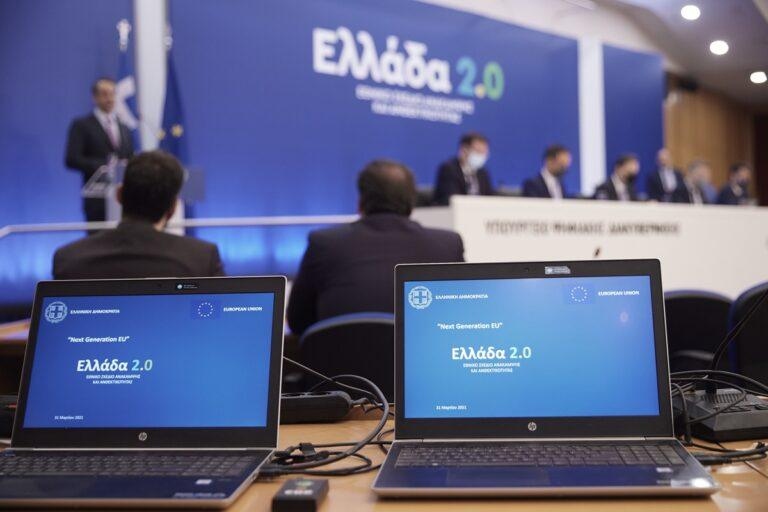Greece is entering the most demanding phase of the Recovery and Resilience Fund, as the European Commission has given the green light for the disbursement of €2.44 billion, confirming that the country has successfully completed 32 milestones and 7 targets for the sixth installment.
However, behind the positive news, the Commission’s report includes a clear warning: time is running out, and any delay could prove costly.
According to the latest figures, Greece has already absorbed €23.4 billion and completed 178 milestones, covering roughly 65% of the program—above the EU average but below the frontrunners, who have exceeded 70%.
The European Commission urges Athens to accelerate efforts, as all projects must be completed and delivered by August 2026. After that date, any unfinished project risks being permanently lost and will no longer be eligible for funding.
Red-Flag Projects and Delays
While the overall progress is positive, the Commission highlights several projects facing significant delays, including:
- Hospital and Health Center renovations
- Social housing programs
- Rail infrastructure projects
- Carbon storage and energy projects
If these projects are not completed by summer 2026, they may need to be shifted to other funding tools, such as the EU Structural Funds (ESPA), to avoid permanent loss of resources.
Responses from the Ministry of Finance
Deputy Minister of Finance, Nikos Papathanasis, reassured that “health and social housing projects are progressing normally” with a budget of €2 billion, noting that projects facing obstacles—like the “Apollo” energy program—will be replaced by new, ready-to-implement initiatives.
By the end of October, Greece must submit a revised national plan to the Commission for approval at the December Ecofin, incorporating adjustments, project reprioritizations, and changes to ensure full absorption of funds.
Loans and Business Participation
Out of the total package, €5.5 billion remain in grants, and €6 billion in loans. Loan disbursements are progressing more slowly, as demand from SMEs remains low despite efforts to simplify procedures.
So far, €10.18 billion has been disbursed out of a total €25 billion, with another €8 billion planned for 2026, the milestone year for completing the Fund.
Flagship Projects in the “Final Sprint”
The coming months are critical for the program’s success. Key projects include:
- Renovation of 80 hospitals and upgrade of dozens of Health Centers
- Deployment of 425 electric buses in Athens and Thessaloniki
- Completion of the E-65 motorway
- National land registry completion
- Seismic checks in 21,970 public buildings
- Digital upgrade of the Justice system
Each of these projects serves as a “reliability test” for public administration and a driver for economic acceleration.
Analysis: Race Against Time
The Greek government has maintained a satisfactory implementation pace. However, the last two years of the program will be the most challenging, with strict deadlines, bureaucratic delays, and political reshuffles posing significant risks.
The success or failure of the Recovery Fund is not only about Greece’s credibility in Brussels; it also determines whether the country can capitalize on this unique opportunity for transformation. With public investments at historically high levels, proper management of funds could establish a new development model focused on green transition, digital economy, and social infrastructure.
As a senior European official commented:“Greece has made impressive progress; now it must prove it can finish strong.”
